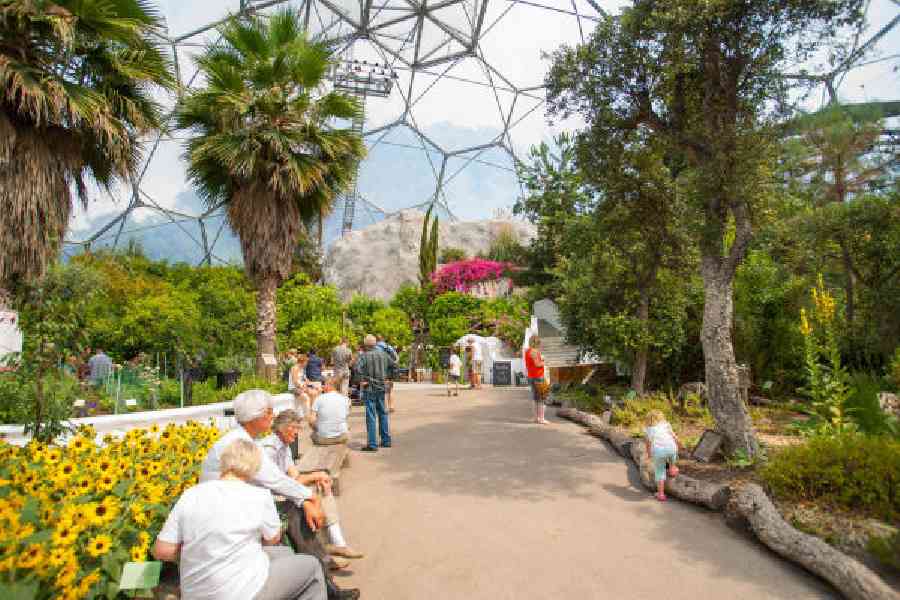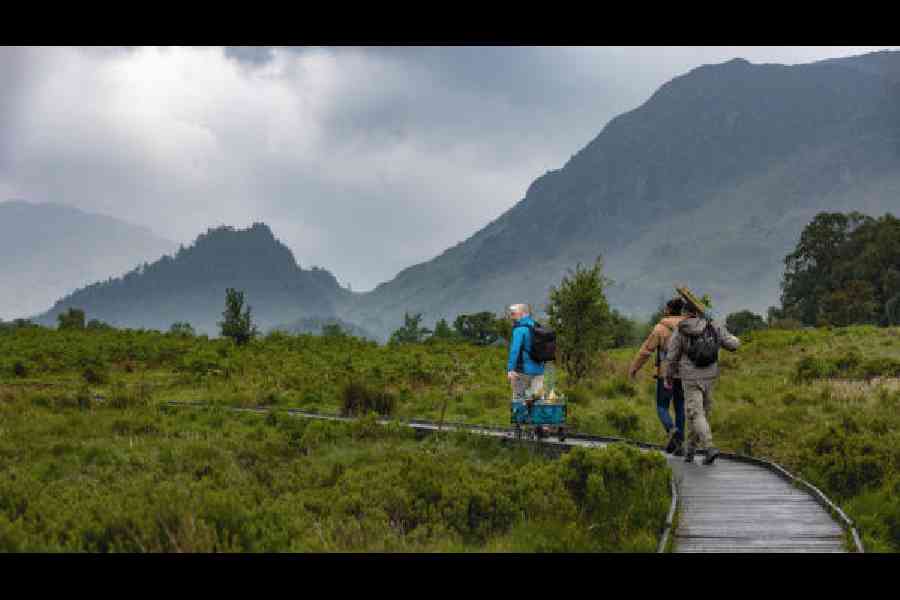The future of tourism lies in regeneration, not just sustainability. “It’s about leaving places better than we found them.” The comment by British deputy high commissioner Andrew Fleming set the tone for a World Tourism Day event on the theme of “Sustainable tourism: Caring for our people and planet”.
“As we face climate change, biodiversity loss and shifting consumer values, the industry has to evolve and will continue to evolve, more so with the advent of AI,” Fleming pointed out. He cited examples of places that he had been to in a distant past that were beautiful and almost unknown then, but have now been ruined by tourism. “One example would be Phu Quoc island off Vietnam. It used to be a true paradise... now it is completely overrun by tourists.”
In India, he named Meghalaya as one of the states that lead the way in sustainable tourism. In the UK, he said, the transformation is underway. “The regenerative tourism guide of Visit England is a powerful framework offering businesses practical steps to embed sustainability into every aspect of tourism operation.”

Inside geodesic dome of Eden Project botanical gardens people moving about or relaxing
The event at the British Club also put the spotlight on UK-India travel opportunities. Britain, Fleming said, was meant to be explored — by bike, foot, train, and even by kayak or yacht. “This is a nation for the eco-minded adventurer and across the UK, inspiring examples are emerging,” he explained. He mentioned Castlefield Viaduct in Manchester, once a disused Victorian breach, which is now a lush urban sky park managed by the National Trust. He also spoke of the Eden Project in Cornwall, which has transformed a former clay pit into the world’s largest indoor rainforest, and is “a beacon of environmental education and innovation”.
Fleming spoke of changes taking place in India too, since the time when he first came in 1988 as a backpacker. “It was really hard to find anywhere to stay outside of the cities. It was around that time that Rajasthan started encouraging even the smallest village to set up some kind of homestay, bed and breakfast type thing, which has now become popular. Such models help even the smallest communities grow and show how tourism can be a force for good, supporting local economies, protecting nature and inspiring conscious travel.”
The diplomat urged the travel professionals in the audience to market Durga puja. “The east and the northeast of India are perhaps having the lowest footfall despite hosting Durga puja, the biggest arts festival in the world, as many people call it. Few people in the UK know about it,” he pointed out.
He also advised the agents to plan creatively how tourists could visit Calcutta. “It may not be an extension of a trip to India. Can we get tourists headed for Malaysia, or Thailand or Vietnam, to stop and spend time in Calcutta in an adventurous way? Years ago, countries like Laos and Cambodia were doing that,” he suggested.
Addressing the event virtually, Ritu Varma, the country manager of Visit Britain, Britain’s national tourism agency, pointed out that Indian visitors were the most valued as they stayed longer, travelled wider and spent more than an average international visitor. “We are currently forecasting a record of £900 million spend from Indian visitors to the UK, which is almost 15 per cent more than last year, and 20 per cent higher than the pre-pandemic levels. We also expect about 666,000 visits from Indians in 2025. This projection is looking to increase to 1 million by 2030,” she said.
But what makes Indian travellers unique, she said, was not just the numbers. “It’s their behaviour. On average, they stay four times longer than an adult visitor and over half of their nights are spent outside London, which means that they’re really looking at regions. This shows the immense opportunity to take tourism beyond the gateway cities and into Britain’s natural landscapes, historic towns and cultural hubs.”
Describing Calcutta as “an increasingly important source market for outbound travel”, she said the city “represents a very high-value audience which is eager to explore new experiences and comprises sustainable travellers as well”.
A panel discussion was subsequently held, featuring members of the travel and tourism industry, where the moderator Amit Sengupta asked the speakers to share sustainable practices that had been adopted — installing water plants and rain water harvesting on the premises, hiring personnel and procurement of items for daily use locally, and so on.
The discussion threw up some interesting statistics. India ranks 14th in international receipts, 24th in international arrivals, and 128th in environmental sustainability. The ministry of tourism has announced a national strategy for sustainable tourism in 2022, followed by the Travel for Life programme in 2023. The initiative aims to drive behavioural change among tourists and tourism businesses to adopt eco-friendly practices, such as saving energy, reducing waste, and supporting local communities and cultures.
The aviation industry, it was mentioned, contributes 2.5 per cent of the total carbon emission across the globe. Of that, 13 per cent is the share from the travel industry. The Indian Association of Tour Operators, it was reported, has launched a campaign on Responsible Tourism: Mission 2027, a two-year project which will come up with standard operating procedures for stakeholders on policies, hold workshops, and give out certifications and awards.
The emergent trend of slow tourism was discussed, in which travellers consciously avoid a hectic tour itinerary and stay in a destination for a longer period to understand the culture and heritage, and spend more time with local people.
A travel fair in March will showcase operators with slow tourism offerings, it was announced.
Chandni Travel Group, a local travel agency, also announced the launch of its global office in the UK.










